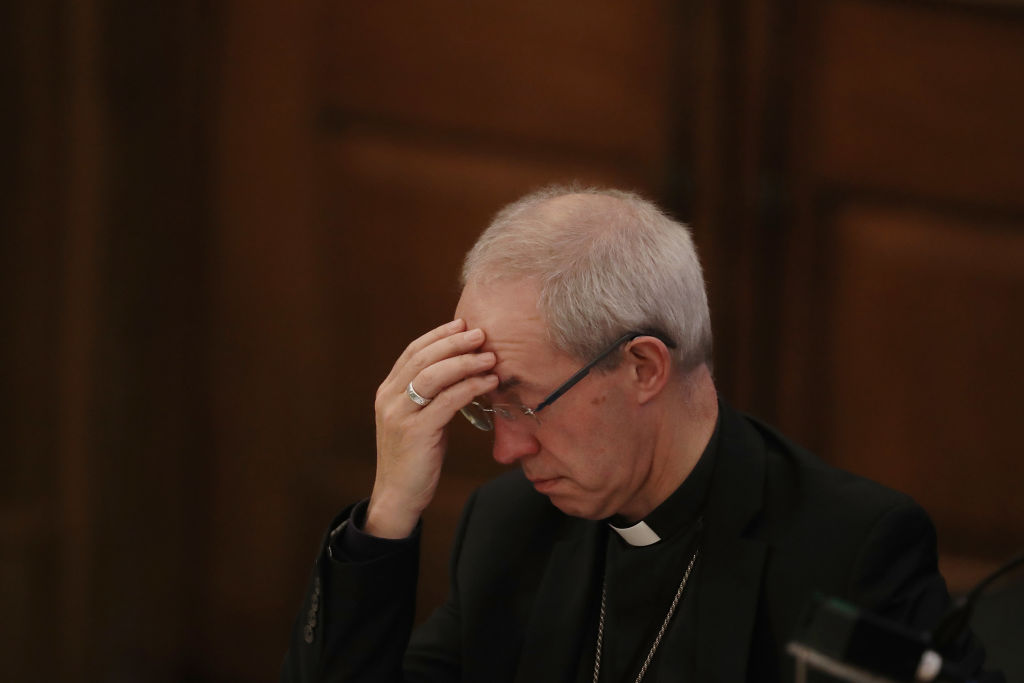This is an excerpt from the latest episode of the Holy Smoke podcast with Damian Thompson, which you can find at the bottom of this page:
The former Archbishop of Canterbury, Justin Welby, is back in the news following his interview this week with the BBC’s Laura Kuenssberg. The interview – his first since he resigned last November – was clearly Welby’s attempt to draw a line under the abuse scandal that cost him his job.
The 2024 Makin report concluded that the Church of England missed many opportunities to investigate the late John Smyth, one of the most prolific abusers associated with the Anglican Church. However, the biggest headline from the interview was that Welby would ‘forgive’ John Smyth were he alive today. Albeit unintentionally, the former Archbishop of Canterbury ended up cementing his reputation as an inflexible micro-manager with a tin ear for the views of abuse survivors and his own clergy.
Damian Thompson (DT): Do you think Archbishop Welby would have been better at his job if his background hadn’t been so unusual, so atypical?
… He had a very privileged background, he went to Eton and Trinity, Cambridge, and then became the treasurer of a city law firm and then, through the HTB network, eventually got ordained. But his background was very much in finance, in business. He was, I suppose if not a member of the upper classes, closely connected to it; he had an exceedingly managerial mindset. Do you think that if he were a more conventional career clergyman, he might have handled this sort of thing better?
Fergus Butler-Gallie (FBG): Yes, frankly.
I think there are two things at play. One, there is his personal trajectory and the fact that it coincided at the wrong time for the Church of England. Someone said to me that we had our archbishops the wrong way round. Had Welby been there during the procedural nitty gritty in the early 21st century – the issues around the ordination of women, the issues around reconciliation in Synod, etc. – Welby actually might have managed that better, because it probably did need someone to cut through some of the kind of molasses-like procedural debate.
But what he lacked, I think, was the ability to speak to something more profound or something deeper, in a way that Rowan Williams, for his perhaps difficulties, in that sense could. So yes, I think the fact that he came along at a time when the Church of England thought ‘ah, we need a magic wand in the form of someone who understands’. The secular world was actually fatal for both parties. It was a really dangerous thing because there was a sense that he could come in and impose secular models on the Church and on the appointments of senior figures, copying the civil service etc., and everybody thought, ‘oh, well, that’s obviously the way we solve our problem’.
You can listen to the full episode here:







Comments